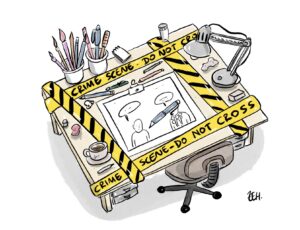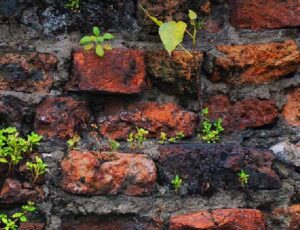
Caliban Futures: Exploring Caribbean Human-Animal Ecologies
Adding theoretical complexity to human-animal relations, troubling nature-culture divides and the use of related essentialist categories such as “personhood”, “domesticity,” and “wilderness”.
Over the last decade or two, a “multispecies” turn has been evident across a range of disciplines in
the social sciences and humanities, from anthropology and geography to literary criticism and science
and technology studies. Such research has explored the dynamics of human-animal relations in
different contexts, highlighting practices of care and protection, as well as control, extraction and
surveillance. Such work is adding theoretical complexity to human-animal relations, troubling nature-culture divides and the use of related essentialist categories such as “personhood”, “domesticity,” and
“wilderness”. Moving beyond dominant categories of domestic and feral animals, for instance, this
scholarship has been analyzing multiple forms of interspecies communication, co-habitation and co-laboring, and in so doing reflects on alternative futures of human-animal relations and their socio-environmental effects.
Colonial modes of power and indeed modernity itself relied on a separation of humans from nature.
The engagement of multispecies research with colonial legacies and decolonial futures,
however, is still emergent. It is clear that colonial modes of power and indeed modernity itself relied
on a separation of humans from nature, and on the exploitation and commodification of the latter,
giving rise to an era of enduring planetary change – an era increasingly indicated through the concept
of the Plantationocene. The inequalities associated with these planetary transformations were
legitimized by categorizing colonized peoples as closer to nature and specifically closer to animals,
through discursive forms of racialized animalization and dehumanization that endure in the present.
Yet we can also recognize numerous ways that the conjoined oppression of colonized humans and
non-human animals has been recognized and reimagined, enacting decolonial futures both by working
towards forms of multispecies justice and by troubling human-nature and human-animal binaries
Approaching Caribbean animals as symbols, focusing on animals as metaphorical representation of inter-human relations or on animalized inscriptions of racialized alterity.
In this workshop, we propose the Caribbean as a generative site from which to parse such
colonial legacies and the potential for decolonial ecological futures. Anthropological and literary
research on Caribbean terrestrial and maritime ecologies in particular has begun to analyze historical,
current and possible future animal-human relations. This work has overall tended to approach
Caribbean animals as symbols, focusing on animals as metaphorical representation of inter-human
relations or on animalized inscriptions of racialized alterity. The workshop seeks to develop this work
further, bringing together ethnographic, historical and literary contributions, that include but extend
beyond representation to take animals’ fleshy, animate modes of existence seriously while exploring
their everyday and spectacular connections with specific human individuals, groups, and collectives in
Caribbean societies. In attending to such entanglements, we also seek to draw on traditions of
Caribbean thought to complicate human-animal dualisms. In particular, the Caribbean cultural
imaginary of Caliban – which here, we take to stand for a broad range of chimeric beings or hybrid
human-animals – allows us to recognize histories and futures created out of apparently irreconcilable
ontologies.
Imagining and enacting decolonial ecologies and futures, focusing specifically on multispecies justice.
Analyzing such concrete instances through ethnographic, cultural and historical methods, we
seek to understand how animals and humans may be “subjects” in developing practices of co-habitation and co-laboring. Taking such situated practices seriously allows us to both imagine and
enact decolonial ecologies and futures, focusing specifically on multispecies justice. The workshop will
be organized through an intensive text-based format, drawing on discussion of draft papers circulated
in advance, in order to develop these into manuscripts for a special issue.
Program
December 1
09:30 – Opening – Rivke Jaffe & Olivia Gomes da Cunha
09:45 – Wigbertson Julian Isenia (University of Amsterdam)
Piskadó: Iguana Soup, Fish Fry, and Queer Desire in Curaçao and Jamaica
Discussant: Alana Osbourne (Radboud University Nijmegen)
[15 min break]
11:00 – Kyrstin Mallon Andrews (Syracuse University)
Death of a Manatee: The Forensics of Ecotourism in the Dominican Republic
Discussant: Giovanna Caponi (State University of Rio de Janeiro)
12:00 – João Fernandez Pereira (University of Amsterdam)
Cosmological Bases of Urban Violence: notes from Rio de Janeiro
Discussant: Benjamin Fogarty-Valenzuela (Leiden University)
13:00 – Lunch
14:00 – Rivke Jaffe (University of Amsterdam)
Reimagining Jamaican security labor as interspecies care
Discussant: Nikkie Wiegink (Utrecht University)
[15 min break]
15:15 – Shani Roper (University of West Indies) & Wayne Modest (Vrije Universiteit)
‘We nuh have nutten better fi get?’ Repatriation beyond culture/nature
Discussant: Joseph Sony Jean (KITLV)
December 2
9:30 – Olívia Maria Gomes da Cunha (National Museum, Federal University of Rio de Janeiro)
The enemy will always be around: human-animal modulations in Maroon worlds
Discussant: Túllio Maia (University of Amsterdam)
[15 min break]
11:00 – Vera Sales (University of Amsterdam)
Not in my home! Rats and the labour of multispecies cohabitation in Rio de Janeiro
Discussant: Fábio Castro (CEDLA) (*to be confirmed)
12:00 – Wayne Modest (Vrije Universiteit Amsterdam) & Rivke Jaffe (University of Amsterdam)
Ebry dawg hab him day, an ebry puss him 4 o’clock: canine-human hierarchies in Caribbean art
Discussant: Adrienne Rooney (Vrije Universiteit Amsterdam)
13:00 – Lunch
14:00 – Discussion
-
 Fellow
FellowOlívia Maria Gomes da Cunha
-

-

NIAS Book Series 11 February 2026EventInstitutional Surveillance and the Struggle for Epistemic Diversity
-
